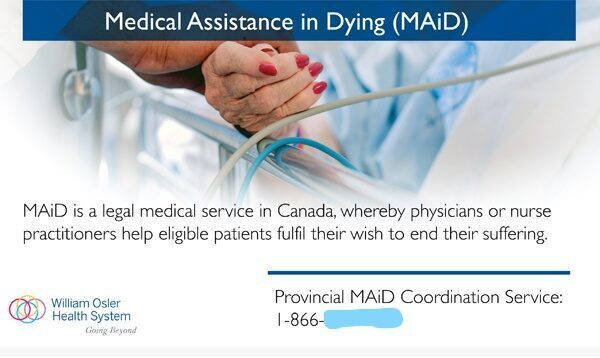Evidence is mounting that assisted suicide’s introduction into the Canadian medical system is undermining plans to improve palliative care and actively damaging the already inadequate care system, with some patients choosing to die rather than to continue to live under sub-standard care.
That’s according to Dr. Neil Hilliard, a palliative care expert from Abbotsford, British Columbia.
“It’s like a cancer growing within the palliative care programs,” said Hilliard who, in 2017, resigned as medical director of the Fraser Health Authority’s palliative care program because of his opposition to the authority’s insistence that he support the performing of assisted suicide in hospices.
“(MAiD) is starting to take over to a certain degree. But still only 5% of people are choosing MAiD; 95% would prefer to live well until they die naturally.”
Hilliard’s comments support recent testimony to a Special Joint Committee of Parliament that is reviewing the country’s assisted suicide legislation.
Dr. Leonie Herx, head of palliative medicine at Queen’s University in Kingston, Ontario, testified that only 30%-50% of Canadians who need palliative care have access to it, and only a “very few,” or about 15%, have access to specialist palliative care.

















